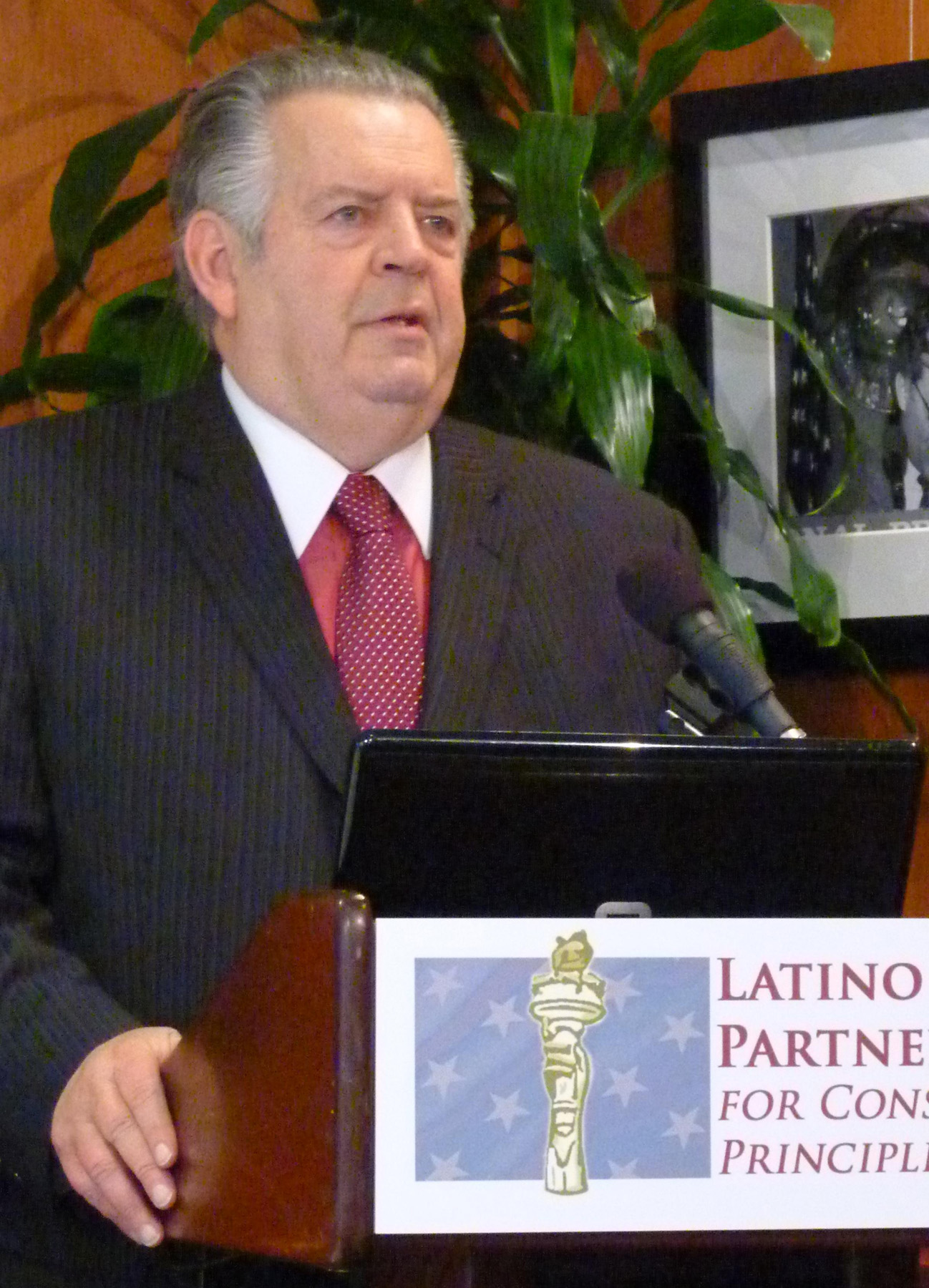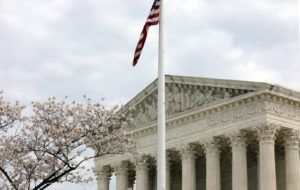
WASHINGTON (BP) — Statehood for Puerto Rico is a moral and human rights issue, Southern Baptist ethicist Richard Land says.
The Ethics & Religious Liberty Commission’s president joined in a Jan. 29 news conference to launch an effort to urge conservatives to support Puerto Rican statehood.
Puerto Rico, an island in the Caribbean Sea, became a United States territory after the Spanish-American War of 1898. Puerto Ricans became U.S. citizens in 1917, serve in the American military and pay some federal taxes, but they cannot vote for president and have no voting representation in Congress.
For Land, the U.S. Supreme Court’s past, discriminatory treatment of Puerto Rico prompted him to endorse giving its citizens the right to approve statehood. He cited a series of Supreme Court rulings, known as the Insular Cases, between 1901 and 1922 that established Puerto Rico as an unincorporated territory, unlike such incorporated territories at the time as Alaska and Hawaii. He also pointed to those rulings’ similarity to an infamous 1896 high court opinion, Plessy v. Ferguson, that upheld racial segregation and what were known as Jim Crow laws through its “separate but equal” doctrine.
As Land studied the Puerto Rican issue, he became convinced it is “a moral issue” and “a civil rights issue,” he said at the news conference.
“Being for Puerto Rican statehood is like being against Plessy v. Ferguson,” Land told Baptist Press afterward. “The same court that gave us Jim Crow gave us a new judicially created territorial status for Puerto Rico that was different than the territorial status that was currently the situation of Arizona and New Mexico and Hawaii and Alaska at the time only because they were Hispanic and different and thus should be segregated and made separate but equal. They were made separate but not equal.”
The Constitution never intended for the United States to have “two classes of territories” or “first-class and second-class citizens,” he told reporters.
“It’s well past time for us to correct the racist, segregationist creation of a long-forgotten Supreme Court and to live up to the promises of our founding documents and redeem those promises for the people of Puerto Rico,” Land said.
Niger Innis, national spokesman for the Congress of Racial Equality, also criticized the Insular Cases at the news conference, saying they effectively placed Puerto Rico in a “metaphysical purgatory.”
Former Puerto Rican Gov. Luis Fortuno told reporters the issue is a “moral imperative.”
“[T]his is a civil rights issue that has to be addressed and solved in the coming years,” he said.
Statehood for Puerto Rico, which has a population of 3.7 million people, would require Congress and the president to enact legislation enabling the island’s citizens to determine their future.
The Latino Partnership for Conservative Principles, which sponsored the Washington, D.C., news conference, pointed to a November vote as evidence Puerto Ricans support statehood.
On a two-question, non-binding ballot, Puerto Ricans voted 54 to 46 percent against continuing as a territory or commonwealth. On the second question, 61 percent voted in favor of statehood, while 33 percent chose being freely associated with the United States and five percent favored independence. Nearly 500,000 people who voted on the first question declined to express an opinion on the second one, however.
The campaign for Puerto Rican statehood is different than the effort by some to make the District of Columbia a state, news conference speakers said. America’s founding fathers wanted the country’s capital to be a district, Fortuno said. A constitutional amendment would be required for D.C. to become a state, while a majority vote in Congress would be needed to enable Puerto Rico to become a state, he said.
The effort to rally conservative support for Puerto Rican statehood will include educational forums and advocacy in Congress, according to the Latino Partnership.
–30–
Tom Strode is Washington bureau chief for Baptist Press. Get Baptist Press headlines and breaking news on Twitter (@BaptistPress), Facebook (Facebook.com/BaptistPress ) and in your email ( baptistpress.com/SubscribeBP.asp).














